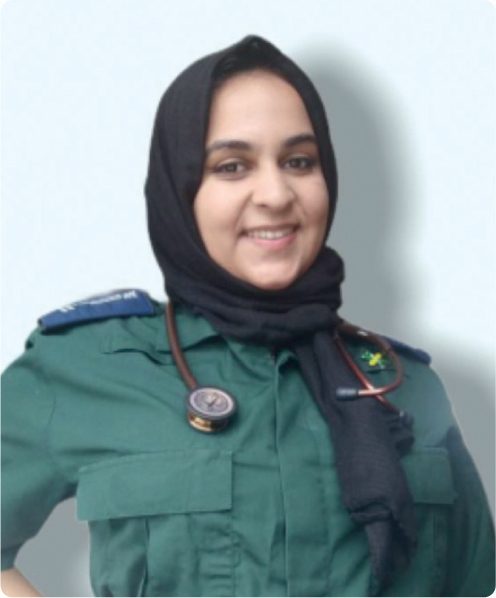
They say ‘time will fly by’… but I never realised how true it is until now. Almost 2 years since I graduated as a paramedic and I cannot quite believe it. I have been reflecting on how I have developed and grown through this NQP period clinically, psychologically and in terms of my work-life balance and will round these thoughts up here
Graduating is a lot like being a student all over again. You're wishing for all the ‘big jobs’ so you can perform the complicated clinical skills and then compare it with all of your peers and colleagues, worrying the whole time that you will get it wrong. However, the independence of not having someone to help you out when you are performing these skills adds a fear factor. I soon learned not to chase the clinical skills and to focus instead on what I could implement for a patient. In some cases, maybe a cannula was needed for example—but in the current state of the ambulance service, we often go through shifts without even touching the drugs bags and I began to see the value of clinical skills beyond what we practised in university. Knowing how to socially prescribe, being aware of what will happen to my patient at hospital, or having more knowledge around their condition rather than treating based on the observations I obtained from them have developed me into a more ‘well-rounded clinician’.
Having graduated as COVID hit, and working through some of the worst times in the history of the NHS caused a decline not just in my mental health, but in that of many others who graduated alongside me. This coupled with a need to justify my degree upon graduating by signing up to every overtime shift possible only exacernated this rapid decline. For a while, my life was about work only, with little time for anything else. The biggest lesson I have learned in my psychological development as a paramedic is realising when I need a break. In the beginning, there is a real urgency to get into work and show what you can do—a sense of having to prove yourself in an area or environment where often many do not know you. However in doing this, we often forget about ourselves. Pacing through this is key. I have become someone who was working almost everyday to someone who now takes time for things that are important to me, which leads me on to my next point of managing my work-life balance:
At the start of year one, my work-life balance was at an all-time low. My family and friends hardly saw me. I was not doing the things I enjoyed outside of work because of booking onto extra shifts or just being too exhausted to do anything. Immersing yourself in activities that do not remind you of work is really important. While not working can lead to guilt because this is what you signed up to do, there is no sustainable future in this direction, just one of exhaustion—a lesson I learned the hard way. Now, I prioritise what is most important to me, and then base work commitments around that. It is not the easiest thing to do, but in a job where we have to apply our emotional strength, almost equivalently to mental, it is needed.
Often, it can seem daunting; all those skills you want to get under your belt, thousands of CPD events you want to sign up for and the many job roles you want to fulfill. But after 2 years, I realise…it will come. When I entered the ambulance service, I was told something that has stuck with me during every shift: ‘It's a marathon, not a race’.

